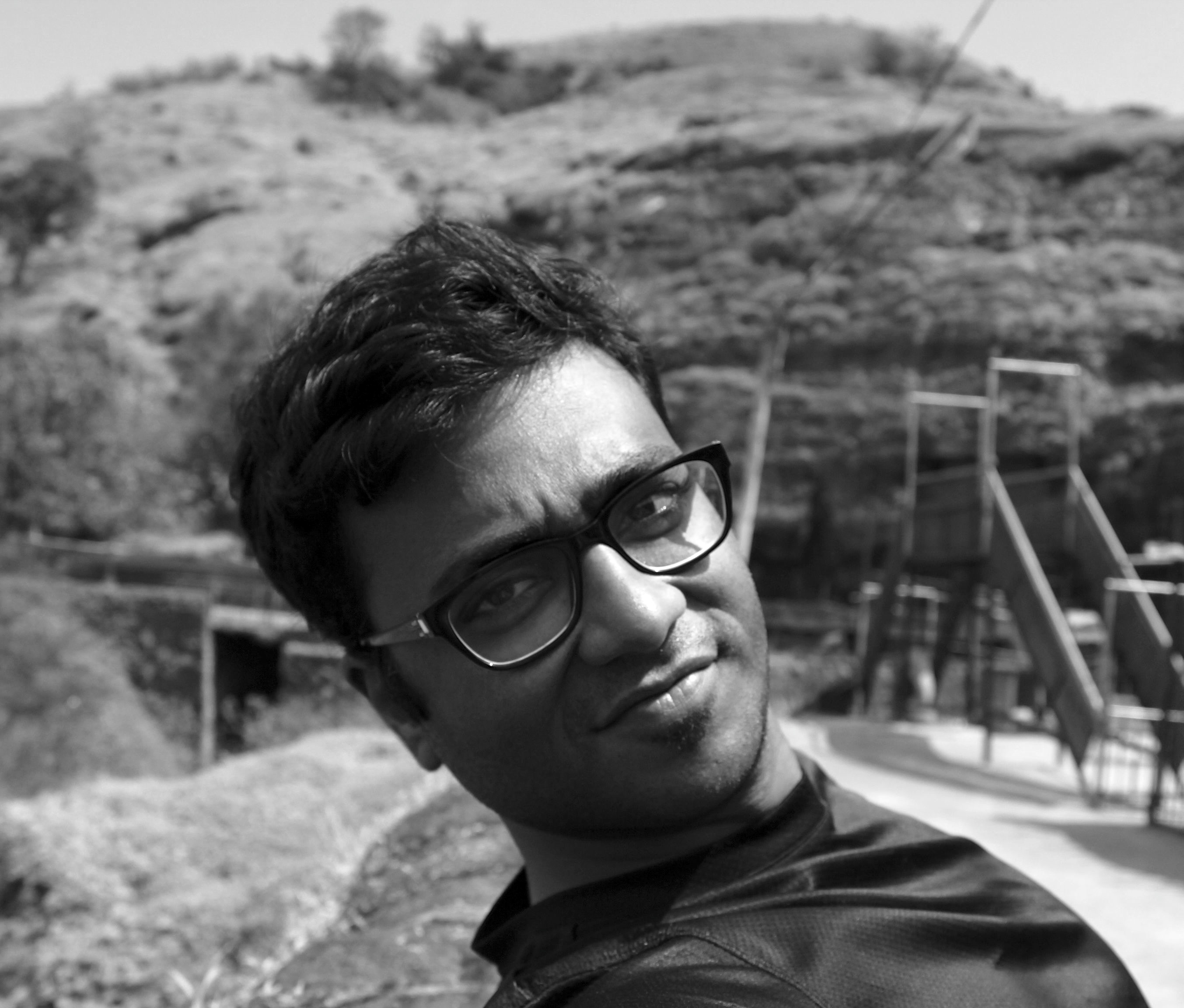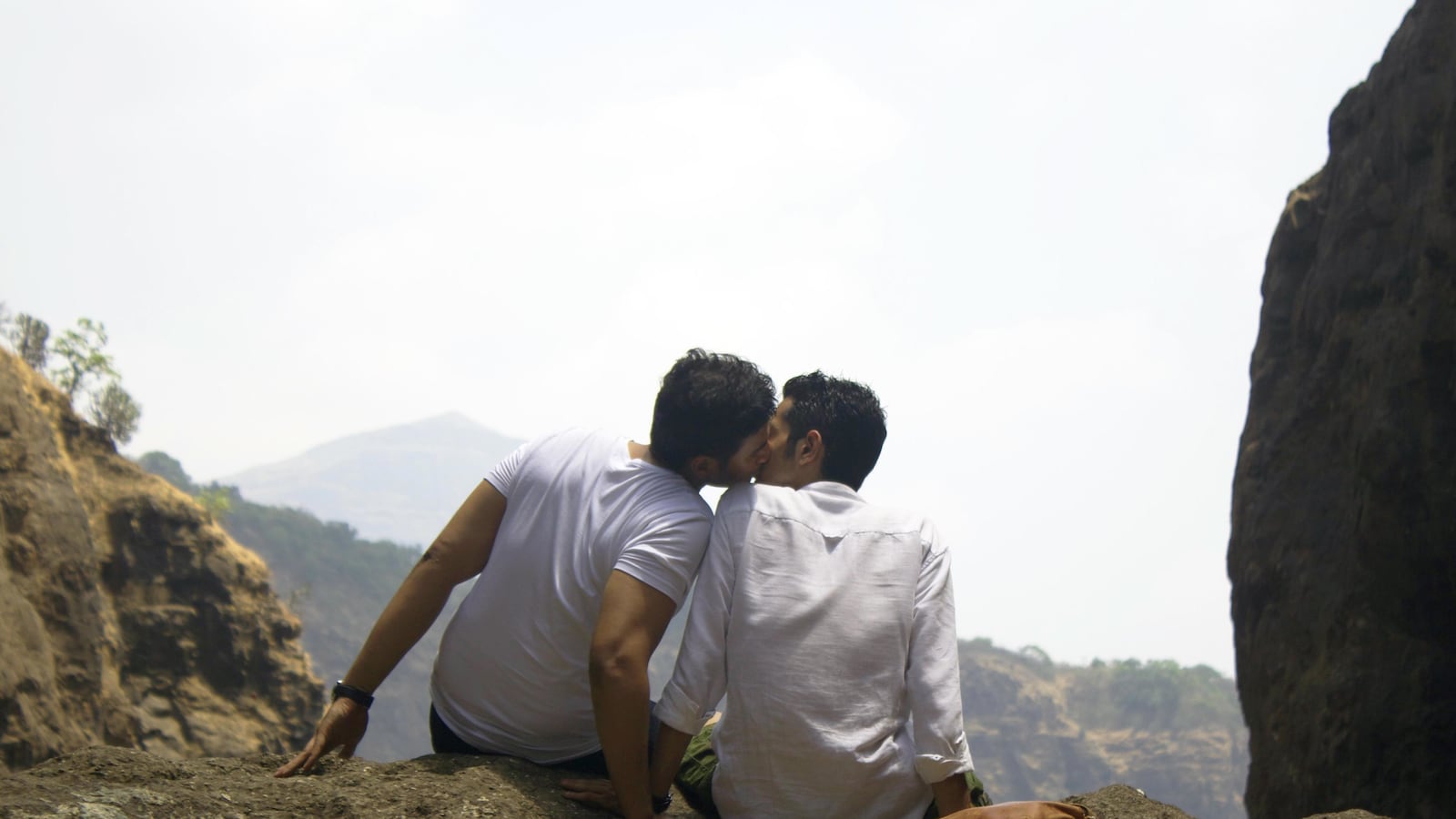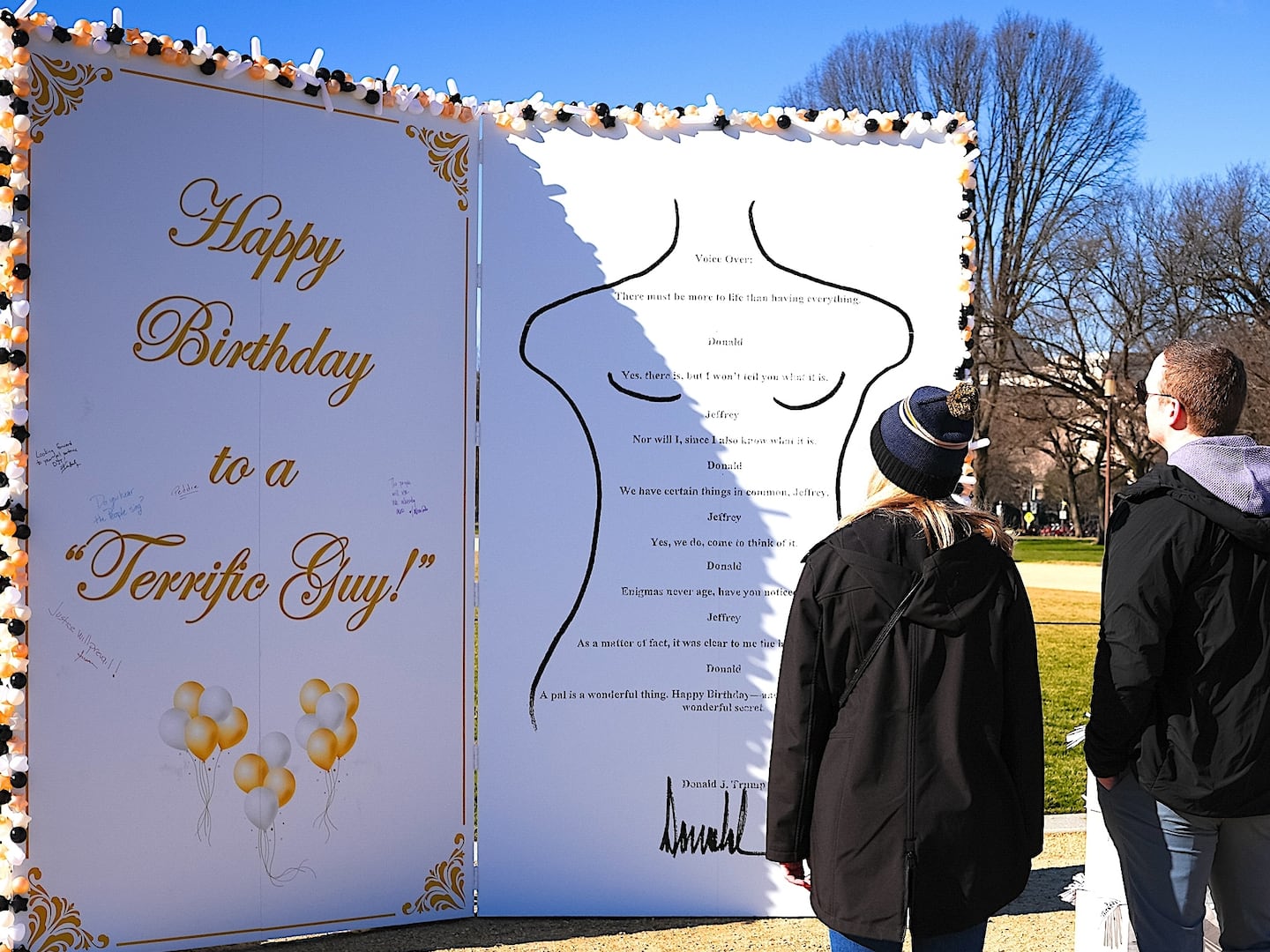Chances are you’ve never heard of my independent film Loev.
Or if you have, you are probably sick of reading about how it was made in secret. Well, it was. Not in the Citizenfour NSA-is-after-us way but it was still shot in secrecy. But before I go any further, let me get the synopsis pitch out of the way.
If you were a potential funder or a locations official, I would tell you this is a road trip film about three friends trying to redefine their friendship. I would tell you that it takes place over a weekend in India, which involves a road trip from Mumbai to this religious town on the outskirts of Mumbai, Mahabaleshwar, and there’s hiking, and dinners, and inside jokes and a whole bunch of silences to compensate for all those truths men are sometimes too afraid to utter.
What I would not tell you is that the film is also a love story between these men; that those silences are from the confusion between love and friendship that these friends are trying to sort through.
We ran a very public crowdfunding campaign driven by social media, approached hundreds of actors and government officials for locations and permissions and we never mentioned any of this to anyone—not because we thought they would come after us with handcuffs and warrants but because we simply didn’t know how they would react.
I was born and spent my early years in India but my entire professional life has been in the States. When I returned to India to make my movie, it felt a bit like coming back to high school: oddly familiar and yet very different. You think you know your way around but the hallways seemed to have changed directions somehow.
I returned to India to make a whole other film which turned out to be too expensive for the local financing market and somewhere between begging for money and getting the Bombay Yes (a solid Yes that actually is a hard No), I got my heart broken. After three days of cheesy music and clutching my stomach, I decided to pour that pain into a screenplay just to get over it and that’s how Loev happened. I certainly had no intention of actually turning it into a film. Having just seen the kind of risk appetite Mumbai had, I didn’t think anyone would be eager to put their money into a film that was sure to be censored, if it was even lucky enough to finish production. Besides, which actor in their right mind would want to trust a first-time director to make a film like this with them? One wrong move and they could be stereotyped by the local industry with very regressive ideas about machismo and heroics.
The government had also just reinstated Section 377—this archaic British law which deemed “sodomy” criminal and punishable by life imprisonment. It had been overturned two years prior by a lower court but our Honorable Supreme Court thought it best to put it back into place, making criminals out of millions of her peace-loving citizens. When I asked friends and people in the queer community why they weren’t fighting this fervently, there was this casual meh. It’s a symbolic law, I was told. No one is actually going to get arrested for having anal sex. I could see their logic but still, symbols matter. The Supreme Court had just endorsed the actions of so many homophobes and bigots who would surely use this ruling to push their own right-wing agenda forward. If they did show up on set and take our production hostage, who would we turn to?
I’m sure a bigger film with a bigger budget and filmmakers with actual standing and political capital would have proceeded differently. Others have made gay cinema in the country and they have used the subject matter to garner publicity for the film during the production process. I just didn’t know India enough to take that on. Given the tiny budget of our film and a shooting schedule of a mere sixteen days, we couldn’t afford a single day of disruption. If some fringe group did show up, our film would simply be shelved.
I didn’t think we were doing something illegal. In fact if I had to, I could defend our film just fine. When well-wishers would call me, I’d always tell them that featuring murder in one’s film does not make the filmmaker a criminal despite murder being a criminal act. I wasn’t worried about that. It’s just that India can be unpredictable. We have tremendous respect and rights for our third gender community but Section 377 is still allowed to exist. Our Censor Board won’t let James Bond kiss Monica Bellucci in Spectre but Ranveer Singh (one of our local superheroes) is allowed to show his bare butt in Bollywood’s bold rom-com Befikre. Ours isn’t a racy film; it’s actually quite coy. The characters barely touch each other and, except for one shot of a person’s behind (see Befikre), there really isn’t anything the censor board could technically have objected to. But you just never know with India. One of our most famous directors is currently in production on his historical opus Padmavati and his (very, very expensive) set has been vandalized and burnt down by a fringe group that claims to protect the history and tradition of community depicted by the filmmaker in his film. The incident happened in February with news cameras clearly recording these vandals destroying property and even beating up the filmmaker, and no arrests have been made to date.
So, that’s where Loev was made. I thought it best to keep my head down and move forward on a need-to-know basis.

The opening scene of the film is set in a cramped Mumbai apartment where Alex comes home to a pitch-black flat and a very cross Sahil because Alex forgot to pay the electricity bill. Alex pleads forgiveness, Sahil scolds, they bicker and banter but it’s not clear if the two are roommates, cousins or lovers.
I also used this scene to audition my actors for the parts of Sahil and Alex. I didn’t have to tell them what the film is about; I could just let it be a road-trip film about friendship. I didn’t want one of the two hundred men we read for the part to tell the wrong person what we were making and land us in trouble. It was only when I was convinced about the suitability of a particular actor that I sat them down and told them the whole truth. I only ever gave the full script to four actors and three of them are in the film.
The same went with the crew. Heads of Departments were told when required and everybody was asked to keep it to themselves. It’s not that I suspected the permissions department of a particular location or a particular crew member of being bigoted, but I just never knew. We never lied but we never gave out the whole truth either. Making a no-budget film like ours requires many, many people to say yes and I didn’t want their bigotry to affect their answer.
This concern wasn’t just restricted to the government or the crew—it also extended to our audience. I didn’t trust them. I knew we would get the queer audience to sample the movie but for the film to break out and actually reach those whose minds I was trying to change, they had to believe there was something in this film for them. I remember not wanting to make a poster or even cut a trailer for the longest time. When my American sales agents sent over this gorgeous poster of the two characters kissing on the rock, part of me just got scared that the audience would reject us before they even sampled the movie. I had worked hard to make a movie that would ease them into the world. I didn’t open with a steamy kiss or some overt moment of affection between men; I wanted the audience to get to know them as characters first and I didn’t want to trigger any preconceived judgments they may harbor.
And that’s just it: Because I didn’t know how anybody would react, I just chose to keep quiet. And in that way, the journey resembles how we deal with the more unique aspects in us. The world wants us to conform and we find some safety in fitting in but before the world can discover what makes us unique or even criticize us for it, we just do it for them. Before anyone can repress us, we repress ourselves. I want to say I did it because I didn’t think our little budget could withstand their onslaught but maybe I was just scared. Keeping things quiet also helped me avoid that conversation with my family when they would find out that their son was making a “gay film.” I’m not stupid. I know it has social repercussions for them.

People will ask me at film festivals how I did something so brave. I’m always sort of intrigued by this compliment. I never thought about it because I never actually thought the film would be finished and ever released. I didn’t even tell my family or friends about it until the world premiere when the press started to write about it. Even if I had, I doubt I would have stopped. My desire for your adulation and my loyalty towards my cinema is too great a motivator for me to worry about things like safety, and when you stumble upon a story so good, you do not want to let go—countries, politics, people’s safety and careers be damned. So I made the film for selfish reasons but it’s turned into something quite beautiful.
The film has helped me kick-start so many essential conversations about what it means to be queer, how consent is defined, how to walk that tricky line between pursuing someone and accepting their rejection and even how to deal with rejection. Back home, it is normalizing the idea of two men in love because of the dignity with which it has been portrayed in the film. The most political thing in the film might be the way it just breezes past the criminal standing of homosexuality in the country.
And indeed, if I had the choice between overturning Sec 377 or changing the social attitudes in our country, I would choose the latter. Laws matter but the attitude of our immediate community towards us matters way more. Yes, that arcane law legitimizes the base instincts of bigots but the law is meaningless if we feel safe in our own living rooms and amongst our loved ones knowing our parents are equally disgusted by our sex lives, regardless of which we way we swing.
Most of all, I hope the film inspires ten other writers to not censor themselves and write their own queer stories because this one got made and released in its original form. The fear of rejection is no reason at all to suppress ourselves; we can’t make it that easy for them.






